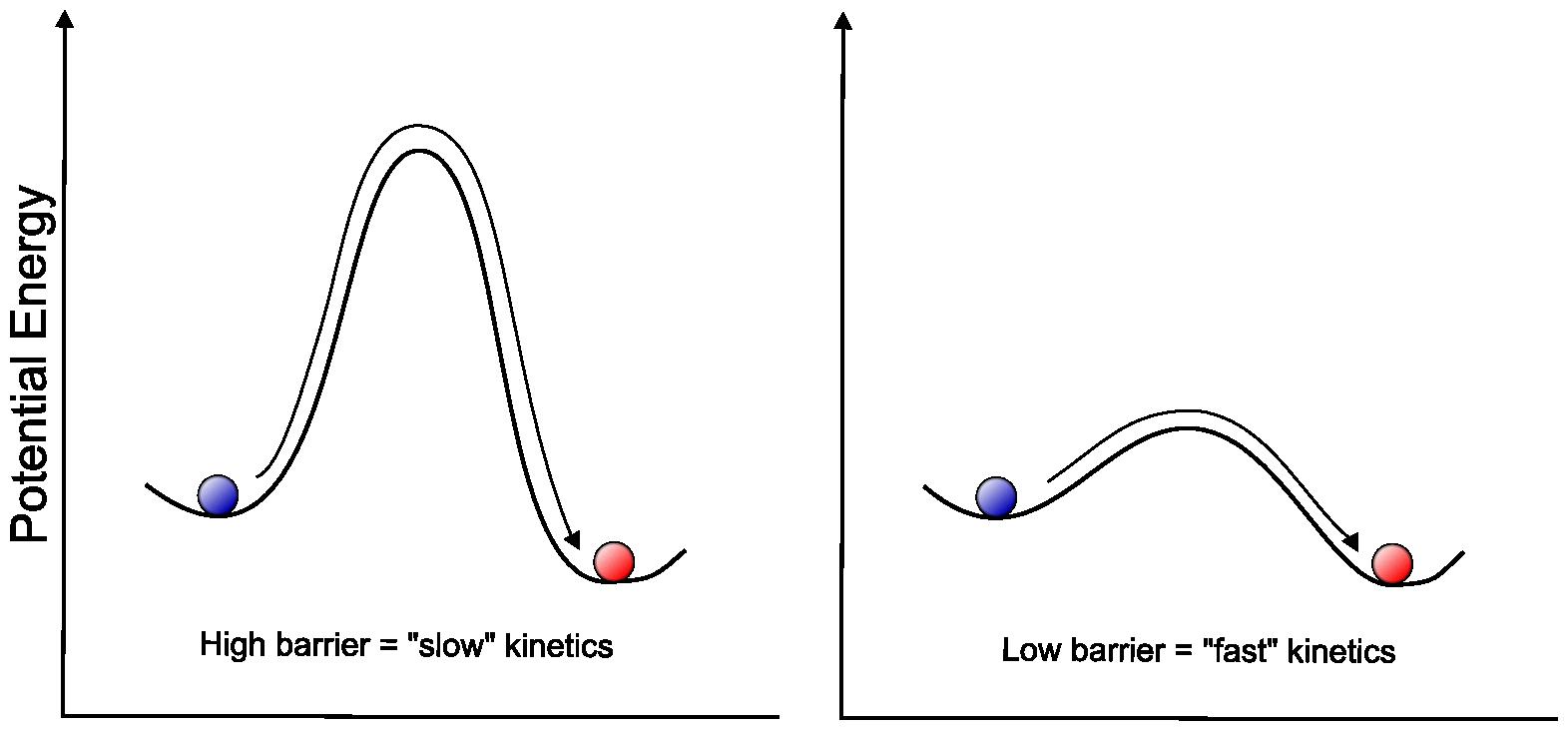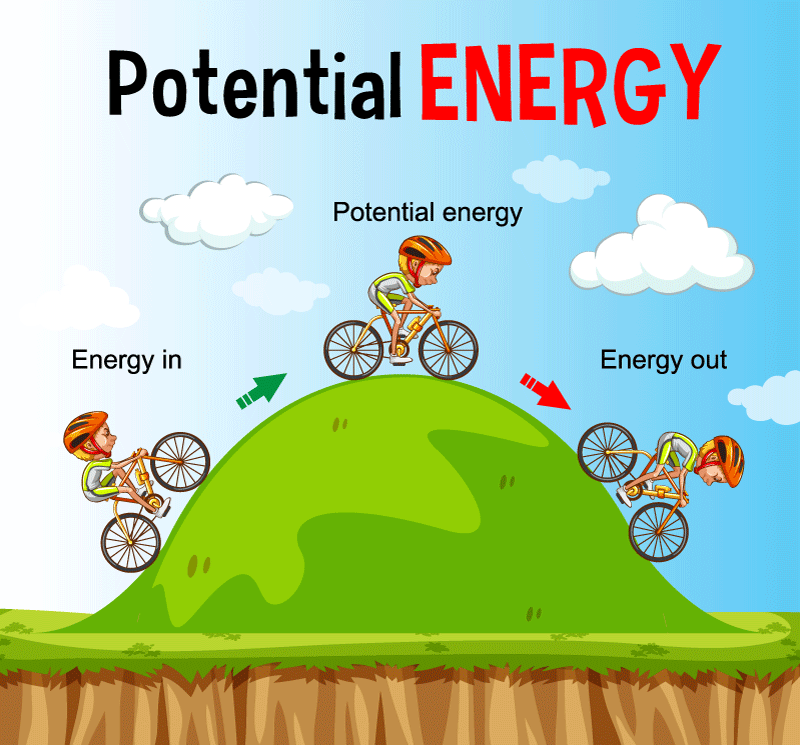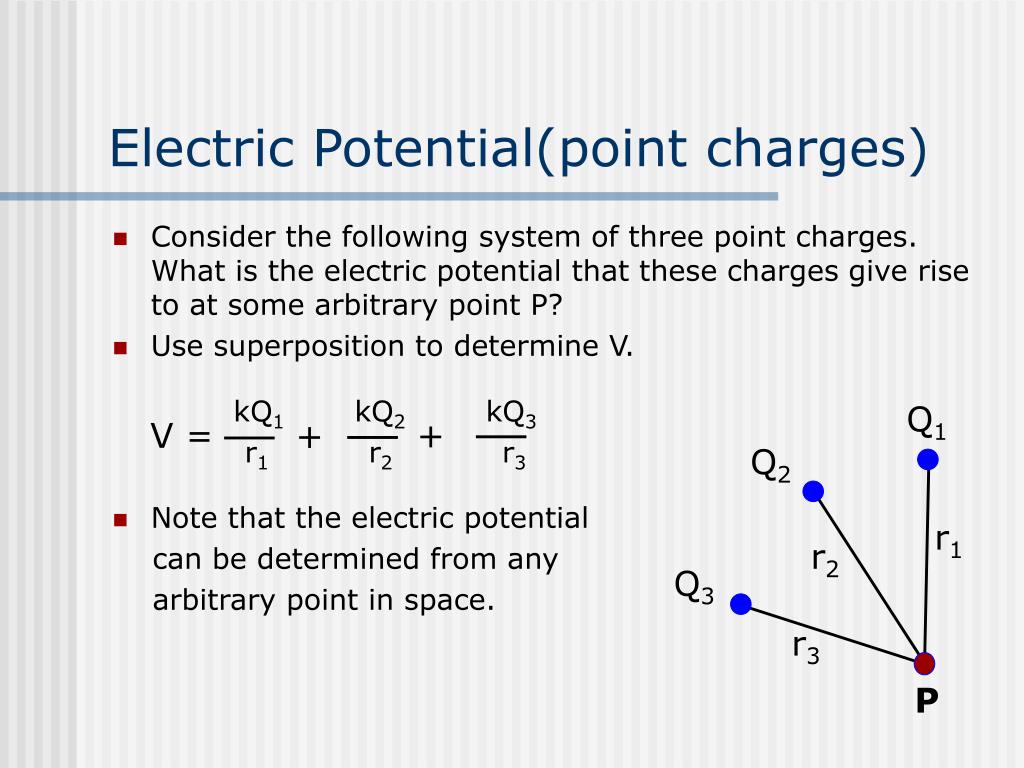Stunning Info About Can Potential Be Positive Or Negative

Can A Potential Be Negative? Exploring The Possibilities
Unlocking Potential
1. The Nature of Potential
We've all heard the word "potential" tossed around. Someone has "untapped potential," a project has "huge potential," or maybe you're told you're "not living up to your potential" (ouch!). But what is potential, really? And more importantly, can it only be a good thing? Let's crack this nut open.
Essentially, potential is the inherent capacity for growth, development, or achievement. It's the possibility of something becoming more than it currently is. Think of it like a seed — it has the potential to become a mighty tree, but it needs the right conditions to flourish. It's that "what could be" lurking within.
Now, most of the time, when we talk about potential, we're thinking about good things. Career advancement, personal growth, solving world hunger... you know, the usual. But like a poorly aimed superhero with good intentions, potential can, well, go sideways. That's where the "negative" side comes into play.
It's not as simple as saying potential is always positive. The key lies in how that potential is directed and what actions are taken (or not taken!) to realize it. It's about understanding that potential itself is neutral — a blank canvas waiting for the artist's touch, for better or worse.

The Sunny Side
2. Cultivating Growth and Achievement
Okay, let's focus on the brighter side of the street for a moment. Positive potential is what we strive for, the driving force behind self-improvement and progress. It's about recognizing the inherent strengths and talents within ourselves and others and finding ways to nurture them.
Consider a student with a knack for math. Their potential lies in becoming an engineer, a professor, or a groundbreaking researcher. But that potential requires dedication, hard work, and access to the right resources. It's not just having the potential; it's doing something with it.
Businesses thrive on identifying and harnessing positive potential. Whether it's developing innovative products, expanding into new markets, or fostering a culture of creativity among employees, the pursuit of positive potential fuels success. It's about seeing opportunities where others see obstacles.
And let's not forget the potential for positive social impact. From volunteering in the community to advocating for social justice, individuals and organizations can use their potential to make a real difference in the world. It's about recognizing our shared humanity and working towards a better future for all. Its like using your superpower for good! Even if your superpower is just really good at organizing potlucks. That's still valuable!

Can Potential Energy Be Negative?
The Shadow Side
3. Unfulfilled Dreams and Missed Opportunities
Now, let's address the elephant in the room. What happens when potential isn't used for good, or worse, when it's actively used for harm? This is where the concept of "negative" potential comes into play, although perhaps "misdirected" or "untapped" potential might be more accurate terms.
Imagine a talented artist who falls into addiction, squandering their creative abilities and ultimately destroying their life. Their potential for greatness becomes a source of immense pain and regret. It's a tragic example of how unfulfilled potential can lead to devastating consequences. The sadness! Think of all the art we missed out on!
Similarly, a charismatic leader with manipulative tendencies can use their potential to exploit others, amass power, and inflict untold suffering. Their charisma, which could have been used for good, becomes a tool for destruction. History is sadly full of examples of this phenomenon, where potential for positive change is twisted into something monstrous.
Even on a smaller scale, failing to address potential problems can lead to negative outcomes. Ignoring a medical issue, neglecting a relationship, or procrastinating on a critical task can all result in serious repercussions down the line. It's a reminder that inaction can be just as damaging as negative action.

Potential Energy
Nature vs. Nurture
4. Influences on Development
So, where does potential come from in the first place? Is it something we're born with, or is it shaped by our environment and experiences? The answer, as is often the case, is a combination of both.
Our genes certainly play a role in determining our inherent aptitudes and predispositions. Some people are naturally gifted athletes, musicians, or mathematicians. However, these innate talents are just the starting point. Without the right opportunities, training, and support, even the most gifted individuals may never reach their full potential.
Environment, including upbringing, education, and social connections, also has a profound impact on shaping potential. A supportive and nurturing environment can foster self-confidence, resilience, and a growth mindset, while a toxic or neglectful environment can stifle creativity, damage self-esteem, and limit opportunities for growth. It's like planting a seed in fertile soil versus concrete — the outcome is vastly different.
Ultimately, realizing our potential is a collaborative effort between nature and nurture. We need to recognize and embrace our innate strengths while also actively seeking out opportunities to learn, grow, and develop new skills. It's about taking ownership of our lives and charting our own course, regardless of the obstacles we may face.

Electric Potential Energy Diagram A And B D
Harnessing Your Potential
5. Actionable Strategies for Growth
Okay, enough theory! Let's get down to brass tacks. How can you harness your potential and live a more fulfilling life? Here are a few practical steps you can take, starting today.
First, identify your strengths and weaknesses. What are you good at? What do you enjoy doing? What comes easily to you? Conversely, what areas do you struggle with? What tasks do you dread? Honesty is key here. Once you have a clear understanding of your strengths and weaknesses, you can start to focus on developing your strengths and addressing your weaknesses.
Next, set clear and achievable goals. What do you want to accomplish in your life? What impact do you want to make on the world? Break down your long-term goals into smaller, more manageable steps. This will make the process feel less overwhelming and more attainable. Also, celebrate your small wins along the way! This will help you stay motivated and on track.
Finally, never stop learning and growing. Embrace new challenges, seek out new experiences, and surround yourself with people who inspire you. Read books, take courses, attend workshops, and network with others in your field. The more you learn, the more you grow, and the more potential you unlock within yourself. Remember, life is a journey, not a destination, so enjoy the ride!

How To Calculate The Electric Potential
FAQ
6. Common Questions About Potential
Q: Is it ever too late to realize your potential?A: Absolutely not! While it may be easier to develop certain skills at a younger age, potential is not limited by age. People reinvent themselves and achieve remarkable things at all stages of life. Don't let age be a barrier to pursuing your dreams.
Q: What if I don't know what my potential is?A: That's perfectly normal! Exploring different interests, trying new things, and seeking feedback from others can help you discover your hidden talents and passions. Don't be afraid to experiment and step outside of your comfort zone.
Q: How do I stay motivated when facing setbacks?A: Setbacks are a part of life. The key is to learn from your mistakes, stay positive, and maintain a growth mindset. Surround yourself with supportive people who believe in you and remind you of your potential. And remember, even superheroes have bad days!
Q: Can focusing too much on "potential" actually be harmful?A: Good question! Yes, it absolutely can. Sometimes the pressure to live up to perceived potential can lead to anxiety, stress, and even burnout. It's important to balance ambition with self-care and remember that your worth is not defined by your achievements. Aim for progress, not perfection.